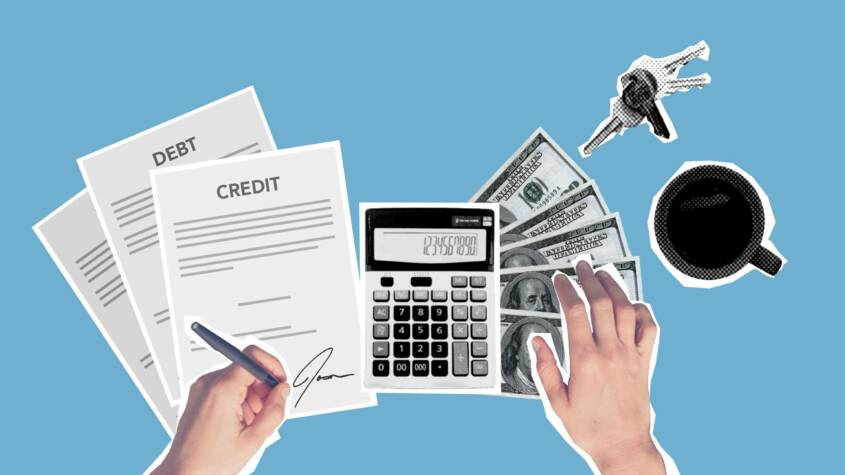
Navigating the world of mortgages with bad credit can be overwhelming. Many Canadians worry that their credit history will prevent them from securing a mortgage. Fortunately, various lenders in Canada offer mortgage options specifically designed for individuals with bad credit, making homeownership more attainable than ever.
Individuals looking for bad credit mortgages should explore alternative lending options, such as credit unions and private lenders, which may have more flexible criteria than traditional banks. Understanding the specific requirements and potential interest rates associated with these loans is crucial for making informed decisions.
Awareness of government programs and initiatives can also aid those with bad credit in obtaining mortgage financing. By leveraging available resources, individuals can improve their chances of homeownership despite credit challenges.
Understanding Bad Credit Mortgages in Canada
Bad credit mortgage Canada present unique challenges and opportunities for borrowers. These loans cater to those with credit scores below traditional thresholds, offering them a path to homeownership despite their financial history.
Defining Bad Credit
In Canada, a credit score below 600 typically qualifies as “bad credit.” This score may result from various factors such as late payments, defaults, or high credit utilization. Lenders view individuals with bad credit as higher risk, leading to stricter approval criteria.
Credit scores are categorized as follows:
- Excellent: 750 and above
- Good: 700 – 749
- Fair: 650 – 699
- Poor: 600 – 649
- Very Poor: Below 600
Understanding this classification helps borrowers gauge their standing and the potential impact on mortgage options. Lenders often require detailed explanations for past credit issues.
Overview of Mortgage Options
Options for bad credit mortgages include subprime and alternative lenders. Subprime lenders specialize in borrowers with lower credit scores but may charge higher interest rates and fees.
Key options include:
- Private lenders: These offer flexibility but come with higher costs.
- Credit unions: They may have more lenient requirements.
- Government programs: Some programs assist individuals in specific situations, like first-time homebuyers.
Borrowers should compare these options carefully. While higher interest rates are common, certain lenders may still offer competitive products. Assessing these details helps individuals make informed decisions.
Applying for a Mortgage with Bad Credit
Navigating the mortgage application process with bad credit can be challenging. Understanding qualification criteria, ways to improve credit scores, and available alternative lending options is essential for applicants.
Qualification Criteria
When applying for a mortgage with bad credit, lenders typically set specific qualification criteria. They may analyze credit scores, which usually range from 300 to 900. A score below 620 is often considered poor.
Lenders also assess debt-to-income (DTI) ratios. A DTI ratio above 43% may lead to denial. Employment history and income stability are additional factors; consistent income supports loan eligibility.
Some lenders might require larger down payments, sometimes 20% or more, to offset risk. Including a co-signer with better credit can improve chances. Overall, applicants should prepare documentation to demonstrate their financial stability.
Improving Your Credit Score
Improving a credit score before applying for a mortgage can significantly enhance options. Successful strategies include:
- Reviewing Credit Reports: Checking for errors or discrepancies that can affect scores. Disputing inaccuracies can lead to score improvements.
- Timely Payments: Paying all bills on time is crucial. Even small unpaid debts can hurt credit scores.
- Reducing Credit Utilization: Keeping credit card balances low relative to limits, ideally below 30%, can boost scores.
- Avoiding New Debt: Limiting new credit inquiries before applying for a mortgage can help preserve credit scores.
These actions can take time, but even small increases in credit scores can lead to better mortgage terms.
Alternative Lending Options
For those with bad credit, alternative lenders offer options outside traditional financing. These lenders may include credit unions, private lenders, or peer-to-peer platforms.
While interest rates may be higher, they can accept lower credit scores. It’s crucial to compare multiple lenders. Different lenders have varying criteria and terms.
Some may provide specialized programs like FHA loans. These programs often have more lenient credit requirements but may demand mortgage insurance.
Exploring these alternative options can open doors for many who struggle with conventional loans.
The Benefits of Professional Resume and Cover Letter Assistance with Brisbane Resume
In today’s competitive job market, standing out from the crowd is essential. Your re…









